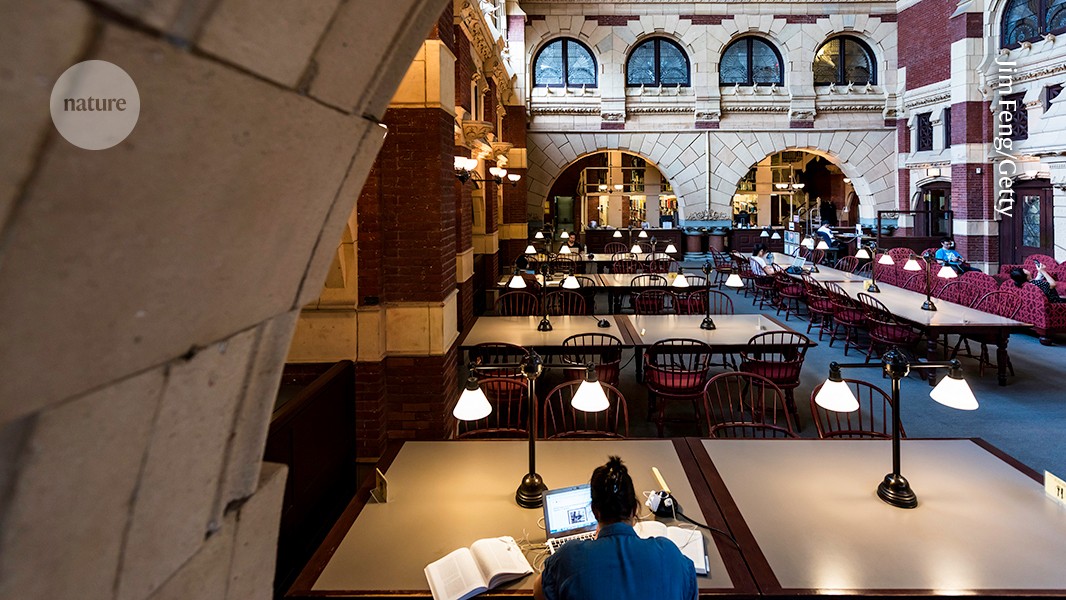Some universities across the United States are reducing or halting their PhD admissions because of federal-funding uncertainties stemming from actions taken by the administration of US President Donald Trump. Few universities have released public statements about their strategies, so prospective graduate students have remained largely in the dark about which institutions are cutting back. Nature spoke to several young scientists caught up in the confusion. Some have received e-mails from universities indicating that they would have been accepted if not for funding uncertainties; others have been told that programmes are completely paused.
Trump’s siege of science: how the first 30 days unfolded and what’s next
At the University of Pennsylvania in Philadelphia, some prospective students even received informal offers to join the graduate programme, only to later have them rescinded, according to the institution’s newspaper, The Daily Pennsylvanian.
“The whole thing is horrendous,” says a professor at the university, who requested anonymity because they are involved in admissions. “They’re cutting the heart of the intellectual mission of the university.” The university did not respond to requests for comment.
At the centre of most of the turmoil is the US National Institutes of Health (NIH), which, with an annual budget of US$47 billion, is the world’s largest public funder of biomedical research. Funding of NIH research grants has largely been frozen for the past month, owing to actions taken by the Trump administration to reduce federal spending. The freeze has persisted despite a federal judge’s order to release the money. Separately, under Trump, the NIH has attempted to slash the rate paid to US research institutions for the ‘overhead costs’ that, for instance, keep electricity on and pay the rent in researchers’ workspaces. The agency proposed cutting the rate from between 40% and 70% to a flat 15% — a potential loss of billions of dollars for universities. A coalition of universities, as well as the attorneys-general of 22 states sued to halt the policy, which they say is illegal, and a federal judge temporarily blocked it from taking effect.
Because of the dearth of information from universities curtailing their admissions, researchers have crowdsourced information about affected institutions on social media. Nature contacted nearly 30 universities from one list of programmes, posted to the platform Bluesky, to verify the information. Some, such as the University of Pittsburgh in Pennsylvania, confirmed they had paused admissions. Others, including Johns Hopkins University in Baltimore, Maryland, said that their cuts were not made in response to the current federal-funding situation. More than 60% did not reply.
Uncertain futures
Although many of the affected programmes are in the biomedical sciences, as reporting in STAT has detailed, uncertainty about federal funds exists across a number of disciplines. A prospective PhD student who applied to the physics programme at the University of Arizona in Tucson received a temporary rejection e-mail, which they shared with Nature. “We are truly impressed by your outstanding academic record,” the correspondence states, but “recent uncertainties in U.S. federal funding policies have significantly impacted our admissions process. At this time, we are unable to extend an offer to you, despite your strong ranking in our applicant pool”. The University of Arizona did not respond to a request for comment.

Postdocs and PhD students hit hard by Trump’s crackdown on science
“It’s awfully demoralizing,” says the prospective student who, along with others interviewed for this story, requested anonymity out of fear for their admissions opportunities. “I feel terrible for the departments, too, whose professors spent so much time reading applications and picking out their new students only to find out they cannot be funded. I think everyone has had the rug completely pulled out from under them.” The student says they are thankful to have gotten into other programmes.
But not every student has been so lucky. One who applied to a social-sciences programme at Vanderbilt University in Nashville, Tennessee, received an informal offer of acceptance in January. Three weeks later, they received a letter from the school stating that admissions for the programme had been paused for the year. “Right now I don’t have any offers, and I’m not sure if I want to stay in research or not,” they say. Vanderbilt did not respond to a request for comment.
Some universities have also stopped and restarted admissions in the past few weeks, creating more confusion. For instance, a student working in the post-baccalaureate programme at the NIH had applied to be a graduate student at the University of Pittsburgh. They received a letter from the university on 24 February that said it was suspending admission of all graduate students. One day later, the university told Nature that the pause has now been lifted. “Our goal is to properly support existing community members while also responsibly adding new members to the community,” a spokesperson says.

